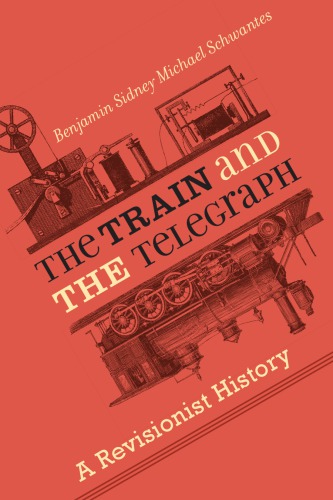

Most ebook files are in PDF format, so you can easily read them using various software such as Foxit Reader or directly on the Google Chrome browser.
Some ebook files are released by publishers in other formats such as .awz, .mobi, .epub, .fb2, etc. You may need to install specific software to read these formats on mobile/PC, such as Calibre.
Please read the tutorial at this link: https://ebookbell.com/faq
We offer FREE conversion to the popular formats you request; however, this may take some time. Therefore, right after payment, please email us, and we will try to provide the service as quickly as possible.
For some exceptional file formats or broken links (if any), please refrain from opening any disputes. Instead, email us first, and we will try to assist within a maximum of 6 hours.
EbookBell Team

5.0
108 reviewsA challenge to the long-held notion of close ties between the railroad and telegraph industries of the nineteenth century.
To
many people in the nineteenth century, the railroad and the telegraph
were powerful, transformative forces, ones that seemed to work closely
together to shape the economy, society, and politics of the United
States. However, the perception—both popular and scholarly—of the
intrinsic connections between these two institutions has largely
obscured a far more complex and contested relationship, one that created
profound divisions between entrepreneurial telegraph promoters and
warier railroad managers.
In The Train and the Telegraph,
Benjamin Sidney Michael Schwantes argues that uncertainty, mutual
suspicion, and cautious experimentation more aptly describe how railroad
officials and telegraph entrepreneurs hesitantly established a business
and technical relationship. The two industries, Schwantes reveals, were
drawn together gradually through external factors such as war, state
and federal safety regulations, and financial necessity, rather than
because of any perception that the two industries were naturally related
or beneficial to each other.
Complicating the existing
scholarship by demonstrating that the railroad and telegraph in the
United States were uneasy partners at best—and more often outright
antagonists—throughout the nineteenth and early twentieth centuries, The Train and the Telegraph
will appeal to scholars of communication, transportation, and American
business history and political economy, as well as to enthusiasts of the
nineteenth-century American railroad industry.